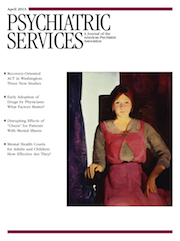Parental High Conflict: The Context for Collaboration
I am a clinical psychologist who has served as an evaluator, expert witness, consultant, and clinical supervisor in juvenile and family courts. I am also a research psychologist and one of the “behavioral academicians” whom Judge Roman (1) calls upon to develop modalities that reduce the number of parental high-conflict matters in the courtroom.
The judge’s call for collaborative efforts between behavioral health and legal professionals is laudable. However, to “do better” would require each of the collaborating parties to acknowledge some realities about the other’s context and the contingencies operating in these contexts.
The work of the behavioral community occurs in a context defined by a health care model and payers who reimburse for medically necessary services provided to individuals with confirmed psychiatric diagnoses. The notion that parental alienation is a treatable disorder among children is hotly contested and is framed by some simply as a way for mental health professionals to bill for their services (2). Parental high-conflict scenarios may reflect conditions or circumstances that could be addressed more effectively through family-focused interventions or community supports rather than through individual treatment modalities that require assignment of a psychiatric diagnosis to a parent or child in order to obtain reimbursement.
Similarly, developing strategies for better collaboration would require recognition that the legal system is an adversarial context. Attorneys represent individual adults or children. They are rewarded, financially and via enhanced reputation, for winning. Their clients may prioritize winning at any cost. The attorney’s goal is to ensure that his or her client gets the best outcome—often defined as the most money, property, or time with children. Unfortunately, their ardent advocacy may itself be divisive to families.
Court appearances challenge the coping skills of all participants. Even proceedings that are perceived as positive may convey stress—for example, divorce in a domestic-violence situation. Stress may push routinely well-functioning individuals down the path of dysfunction, allowing them to be characterized as bipolar, obsessive-compulsive, or narcissistic, as Judge Roman suggests. Parents who are vulnerable for any reason (for example, disability, disadvantage, or inadequate legal representation) may be at higher risk for poor outcomes. Their children are likely to bear the consequences.
I suggest that solutions to the challenges that Judge Roman highlights do not lie solely in conducting research to develop effective modalities for reducing the number of high-conflict legal matters. Persistent parental discord may or may not result in divorce. Children may live for years with family conflict and may never be seen by a judge. Decades of research have already shown us what children need (3). Additional research has demonstrated the positive impact of good-quality parenting, the common elements of effective parent training programs, and the potential benefits of strategies such as parenting plans and postdivorce parenting programs. All family members benefit from appropriate, effective supports, for which we have a growing evidence base.
A public health model that focuses on mental health promotion and illness prevention may provide a better framework for generating strategies to reduce parental conflict than a focus on individual modalities. We may do better together by developing new ways of addressing family matters and resolving family conflict that take mental health promotion and illness prevention into consideration and that support rather than divide family members, even when divorce is the task at hand.
Optimizing the well-being of children requires the collaborative efforts of professionals in many sectors—behavioral health, legal, public health, primary care, education, and social services—as well as the supportive contributions of family, friends, and community members. Optimal child outcomes demand a focus on creating the conditions that promote family wellness across the life span. This is the challenge to the system and our society. I suggest our two professions can do better collaboratively, but we cannot do it alone.
1 : Is there a doctor in the court? Focus on parental high conflict. Psychiatric Services 64:373–374, 2013Link, Google Scholar
2 : The parental alienation debate belongs in the courtroom, not in DSM-5. Journal of the American Academy of Psychiatry and the Law 40:127–131, 2012Medline, Google Scholar
3 : WPA guidance on the protection and promotion of mental health in children of persons with severe mental disorders. World Psychiatry 10:93–102, 2011Crossref, Medline, Google Scholar



